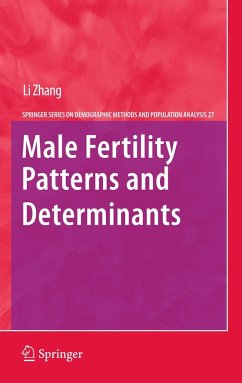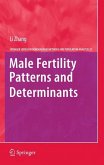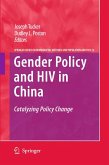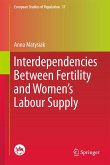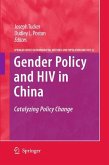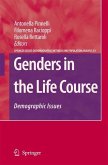In contrast to the female-centric study of fertility, this volume focuses on the role of males and challenges whether fertility variation can be understood without exploring the roles of both sexes. Male and female fertility differentials are presented in rates and determinants in various social contexts.
This book discusses the biological, methodological and sociological issues that have caused men to be overlooked in demographic and sociological literature of fertility. It explores the patterns and determinants of male fertility and studies male fertility rates as compared to those of females in 43 countries and places, over time. Data used in the aggregate level analysis come from multiple sources, including the 2001 United Nations Demographic Yearbook, the 1964 to 2004 Taiwan-Fukien Demographic Yearbooks, and National Statistics Reports by the Statistics Bureau of Republic of China. To explore male fertility determinants, the book analyzes individual data from the 2002 National Survey of Family Growth (NSFG) in the United States. The findings presented here demonstrate that male fertility differs from female fertility in both rates and determinants, which suggests that female fertility cannot fully represent human fertility.
This book discusses the biological, methodological and sociological issues that have caused men to be overlooked in demographic and sociological literature of fertility. It explores the patterns and determinants of male fertility and studies male fertility rates as compared to those of females in 43 countries and places, over time. Data used in the aggregate level analysis come from multiple sources, including the 2001 United Nations Demographic Yearbook, the 1964 to 2004 Taiwan-Fukien Demographic Yearbooks, and National Statistics Reports by the Statistics Bureau of Republic of China. To explore male fertility determinants, the book analyzes individual data from the 2002 National Survey of Family Growth (NSFG) in the United States. The findings presented here demonstrate that male fertility differs from female fertility in both rates and determinants, which suggests that female fertility cannot fully represent human fertility.
From the reviews:
"Fertility is often considered as a female concern by social scientists and even by policy makers. ... Men, for their part, are considered to play a minor role in fertility decisions and behaviors. ... a systematic attempt to compare male and female fertility across time and space. ... Zhang's monograph is a pioneering study that opens up further questions on male and female fertility." (Jean-Marie Le Goff, European Journal of Population, Vol. 28, 2012)
"Fertility is often considered as a female concern by social scientists and even by policy makers. ... Men, for their part, are considered to play a minor role in fertility decisions and behaviors. ... a systematic attempt to compare male and female fertility across time and space. ... Zhang's monograph is a pioneering study that opens up further questions on male and female fertility." (Jean-Marie Le Goff, European Journal of Population, Vol. 28, 2012)

